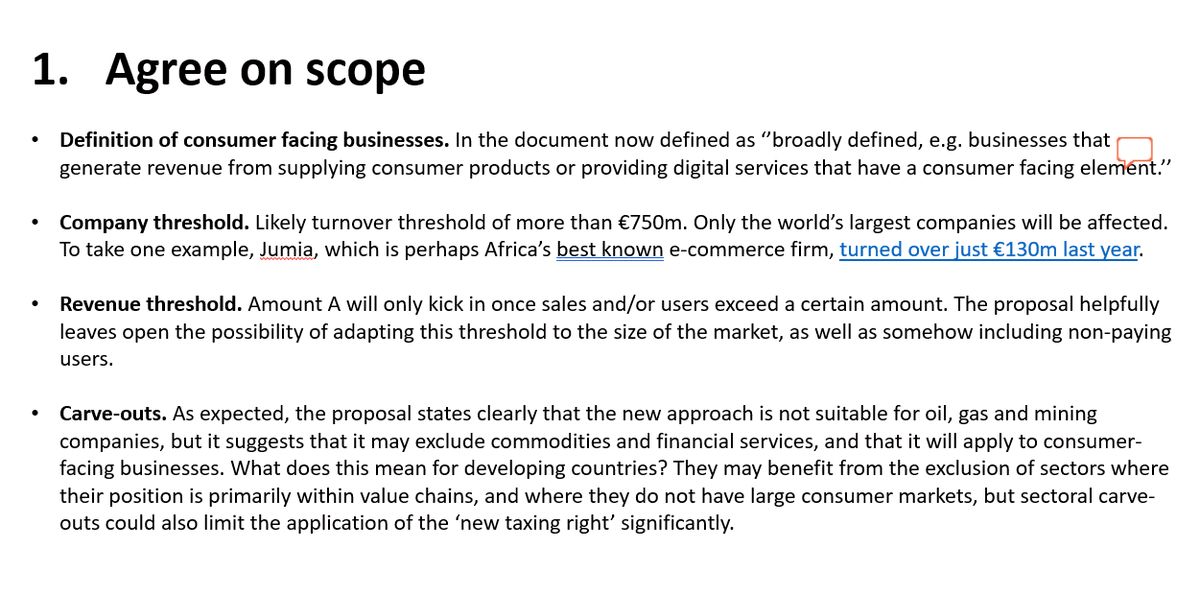
The idea of negotiations of A is to come up with a fixed formula per industry that can be applied on the global profit margin of each company.
This would be the formula: (Z% - X%) x V% = W% / sales per country.
Easy and simple? No!
And a thread about unilateral measures by @Hamza_M_Ali
ictd.ac/blog/the-oecds…
and alexandrareadhead.com/blog
Last week's study of the IMF also crucial! imf.org/en/Publication…
(1) the very important step B for developing countries 👉 a fixed return for distribution and marketing activities in countries.
(2) the very contentious step C for a mandatory binding arbitration.
1. A should take employment into account in allocation key.
2. A should cover enough profits to be meaningful.
3. High fixed return in B
4. No mandatory binding arbitration
5. Scope of reform is not clear!
6. Fear for extra complexities & new grey zones
Still under negotiation and this is the actual revolution if well designed and ambitious!
Also the reforms are far from being finalized. This is just the beginning.














